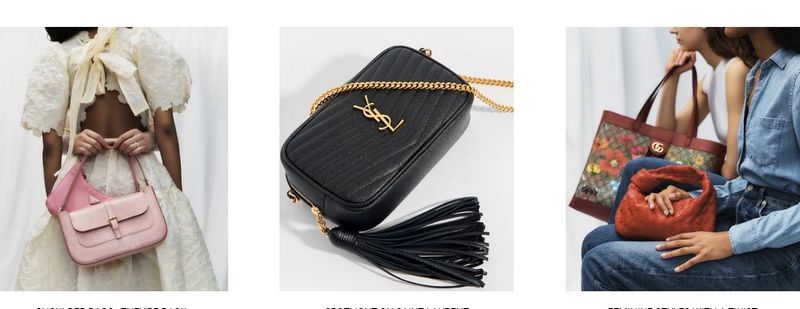With the high street and the fashion industry brought to its knees by the coronavirus pandemic, the ‘buy less, buy better’ ideology of generation Z – those aged 18 to 24 – could see the beginning of the end of fast fashion, new research suggests.
If generation Z’s habits are adopted by the population as a whole there could be a shift to consumers with a “divided wardrobe” – featuring rented items and others bought from resale vendors – becoming the new normal.
The research, carried out on behalf of the Royal Society for the encouragement of Arts, Manufacturers and Commerce (RSA) found from polling that during the pandemic, 28% of people are recycling or reusing more clothes than normal and 35% of women intend to buy fewer clothes in the future. The RSA is calling on the government to invest in sustainable fashion and manufacturers to be more responsible, following the research.
The RSA are also asking for enforced standards around how durable clothes are, plus a push towards a more circular localised economy within fashion.
This emphasis on sustainability, non mass-produced goods and uniqueness mirrors the consumer values of the younger generation whose attitude towards fashion has been shaped by the “Blue Planet effect”.
“Generation Z is discerning,” says Jeff Froom, co-author of Marketing to Gen Z. “[They’ve] grown up with more access to information from more sources than ever before. Inequality, climate change and LGBTQ+ rights are topics they’ve heard about for years.”
Kati Chitrakorn, retail and marketing editor at Vogue Business, said: “For today’s kids fashion is less about fitting in and more about making choices that reflect their own identity.”
Before the pandemic two-thirds of clothing was purchased in stores, but the 18+ group had already found alternatives to bricks and mortar (their sophisticated modes of consumption often outpacing what the high street could offer) shopping through online resale sites such as Poshmark, Grailed, Vestiaire Collective and clothing rental sites, all of which have seen a sales boost during lockdown. “Being able to ‘do something’ – upcycling, customising or reusing rather than discarding – lets younger people feel like they’re part of a movement,” says Chitrakorn “and that mindset has been popular even prior to the pandemic.”
“Young, values-oriented [shoppers] are looking for more responsible ways to consume,” explains Ceanne Fernandes-Wong, CEO of COCOON a luxury handbag rental service. “The pandemic has amplified this. More and more consumers will be comfortable with variety in their consumption choices – from buying new to circular options including rental and resale. A ‘divided wardrobe’ is inevitable.”
Sonia Lapinsky of retail consultants AlixPartners said: “Rental will continue to expand, given consumer sustainability consciousness and a reset in consumerism. We have all made do with a lot less for many weeks – enough to form new habits.”
Depop – a peer-to-peer shopping app that allows shoppers to buy secondhand items from each other – has seen a 90% increase in traffic since 1 April. In contrast, retail sales fell by a record 18.1% in the same month. “Generation Z want individuality and to reduce waste, Depop allows them to do both,” said a spokeswoman for the company.
“We definitely believe that this unique moment will encourage people to reconsider resale as an alternative to shopping ‘new’,” she says. “Our community has access to a vast inventory of pre-loved streetwear, vintage designer, one-of-a-kind creations and more that allows them to build their own identity and create their own story all as a sustainable choice. They have the financial incentive to buy and sell garments, rather than leaving them unused in a wardrobe or sending them to a landfill.”
But it’s not that simple. With retailers still working out what a re-opened store would look like (socially distanced shoppers in store, sales assistants behind plexiglass, compulsory masks, the question of changing rooms), post-corona resale and rental outfits will have the same issues. “Are they communicative and transparent regarding product handling processes and cleanliness?,” asks Lapinsky “If not, the consumer will likely remain skittish to pre-used garments and accessories.” However, e-commerce is still considered by many to be the safest way of shopping.
The future of fashion and retail is under debate. The RSA’s calls follow similar requests from fashion bodies calling for social and environmental sustainability.
On Thursday, the British Fashion Council and the Council of Fashion Designers of America released a statement requesting a reduction in the number of seasonal collections, clothes produced and travel. The sentiment was echoed in an open letter from designers and retailers led by Dries Van Noten that appeared early last week.
guardian.co.uk © Guardian News & Media Limited 2010
Published via the Guardian News Feed plugin for WordPress.


